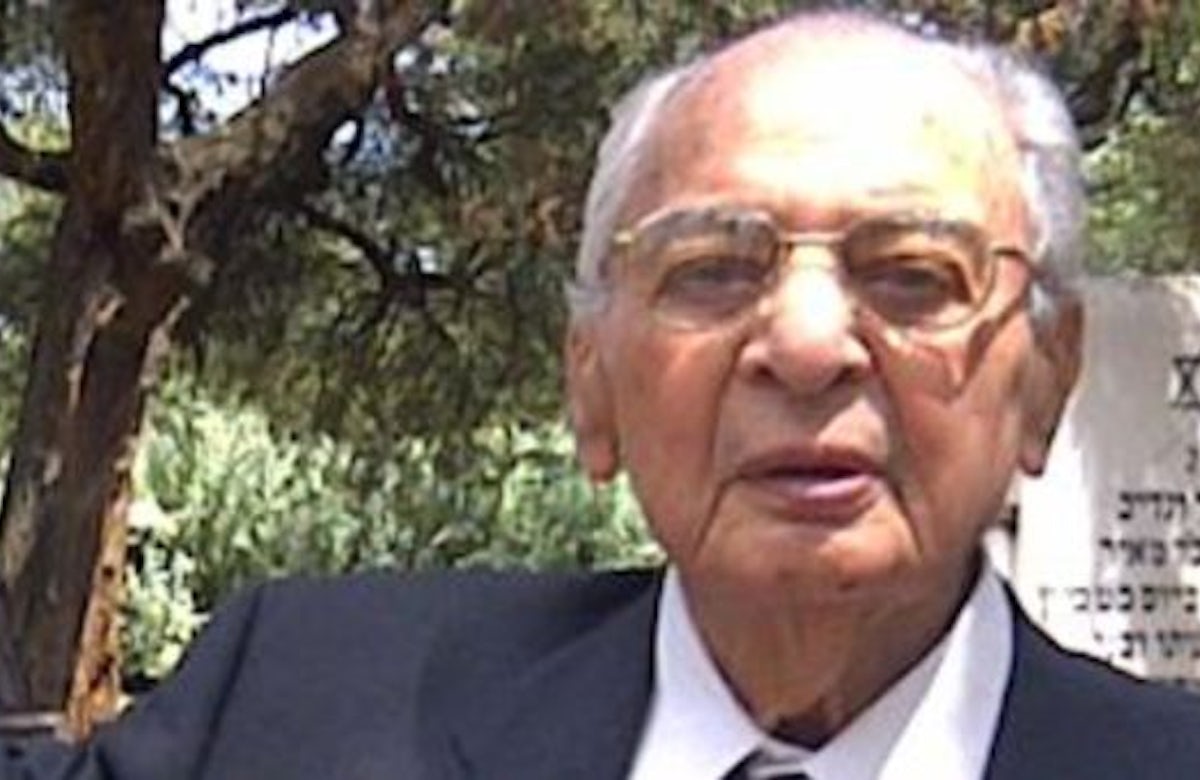 Harold Pupkewitz, the leading Namibian businessman, philanthropist and Jewish communal leader, has died at the age of 96. Pupkewitz’ passing “marked the end of an era for the Jewish community of Namibia, and indeed for the country as a whole”, Rabbi Moshe Silberhaft, spiritual leader of the African Jewish Congress (AJC), said in homage to the late AJC vice-president. Namibian President Hifikepunye Pohamba, Prime Minister Nahas Angula, Cabinet ministers and representatives of the diplomatic corps attended Pupkewitz’ funeral in the capital Windhoek.
Harold Pupkewitz, the leading Namibian businessman, philanthropist and Jewish communal leader, has died at the age of 96. Pupkewitz’ passing “marked the end of an era for the Jewish community of Namibia, and indeed for the country as a whole”, Rabbi Moshe Silberhaft, spiritual leader of the African Jewish Congress (AJC), said in homage to the late AJC vice-president. Namibian President Hifikepunye Pohamba, Prime Minister Nahas Angula, Cabinet ministers and representatives of the diplomatic corps attended Pupkewitz’ funeral in the capital Windhoek.
Born in Vilnius (Lithuania) in 1915, Pupkewitz was nine years old when he arrived in Nambia. He obtained bursaries to study at the University of Cape Town, after which he joined the family general dealer business. In July 1946, he co-founded M Pupkewitz and Sons, a group which under his chairmanship expanded until it had outlets throughout the country. In 1981, the different companies were brought together under the umbrella organization Pupkewitz Holdings, which in 2005 employed 848 people across the south-western African country.
Pupkewitz served almost continually on the committee of the Windhoek Hebrew Congregation from 1938 onwards, including long periods as president. He became a co-founder of the African Jewish Congress in 1993, and remained actively involved as vice-president of the umbrella organization right up until the end. AJC President Mervyn Smith described the passing of his colleague as an “irreplaceable loss” for Jewry in southern Africa.
Pupkewitz was deeply patriotic, committing himself whole-heartedly to building up Namibia, both before and after the nation’s independence. His multiple philanthropic activities include endowing what is now named the Harold Pupkewitz Graduate School of Business at the Polytechnic of Namibia. He served and held high office in various public welfare, economic and educational bodies, including for 50 years on the Windhoek Chamber of Commerce and, after 1997, on the Presidential Economic Advisory Council. He received numerous awards, and in May 2007, one of Windhoek’s most important thoroughfares was renamed ‘Harold Pupkewitz Street’ in recognition of his multiple contributions to the city.
He also kept a close relationship with Israel, a country he admired and which he had hoped Namibia would seek to emulate.
 Until his death Pupkewitz served as honorary president of the small Windhoek Jewish community. The late Jewish leader – who regularly attended services at the local synagogue - was was laid to rest according to Jewish law. On arrival, President Pohamba was escorted to the Ohel by Rabbi Silberhaft, who explained to him and other government members the various rituals of the day and their meaning. Pohamba was one of the first to shovel the traditional three scoops of earth onto the coffin (see picture left).
Until his death Pupkewitz served as honorary president of the small Windhoek Jewish community. The late Jewish leader – who regularly attended services at the local synagogue - was was laid to rest according to Jewish law. On arrival, President Pohamba was escorted to the Ohel by Rabbi Silberhaft, who explained to him and other government members the various rituals of the day and their meaning. Pohamba was one of the first to shovel the traditional three scoops of earth onto the coffin (see picture left).
Many were surprised that someone of Pupkewitz’s stature was being laid to rest in a plain pine box, and that the burial ceremony itself was so modest and under-stated. Silberhaft explained how this represented the Jewish view that just as people came into the world with nothing, so did they leave it, taking with them only the good deeds they had done. “This message came through with particular force in the case of Harold Pupkewitz, who despite accumulating such enormous wealth during his lifetime nevertheless left the world empty-handed save for his many meritorious actions,” the rabbi explained.
The death of Pupkewitz received extensive coverage on the front pages of all the major Namibian dailies, as well as a ten-minute slot on national television. The headlines in major newspapers included “Shalom Uncle Harold”, “Hamba Kahle, Great One” and “Namibia has lost a legend”.






